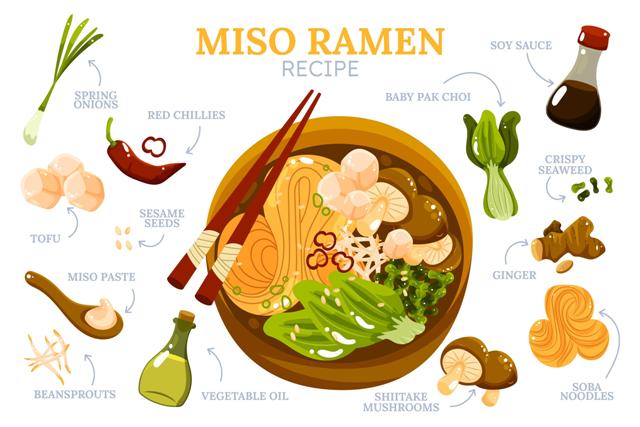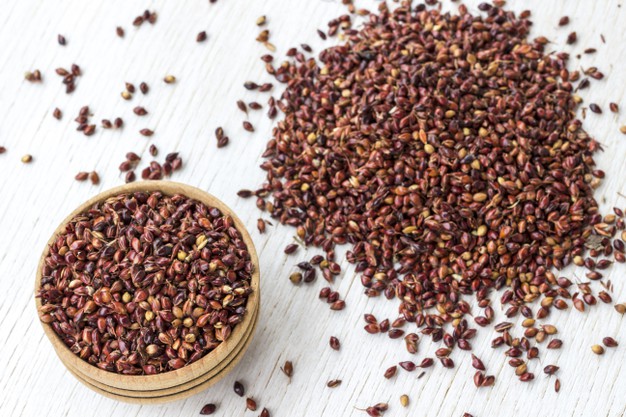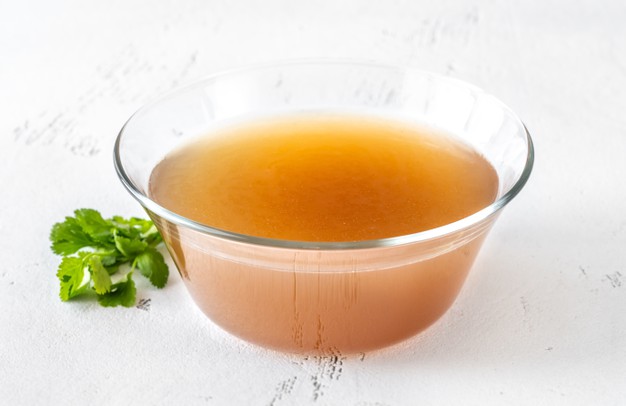Miso is very popular and nutritious fermented food, traditionally used in Japanese and Chinese diets. It is mainly prepared from fermented soybean as well as grains and it is also consisting of various beneficial bacteria.
Nutritional profile
- It contains lesser amount of carbohydrates
- It also contains dietary fibre
- It contains proteins as well. It mainly composed of various important amino acids
- It contains too some extents of fat and mainly consisting of healthy fats
- It contains several important micronutrients as well, which include Vitamin K, B Vitamins, calcium, magnesium, potassium, sodium, zinc and copper
- It is also loaded with various imperative phytonutrients that are accountable for exerting antioxidant, anti-inflammatory and anti-carcinogenic activity
Type
Miso can be found in different forms. The most common type of miso is prepared from soybeans but it also contains other ingredients as well. Some of the miso pastes are also prepared by millet or cultured wheat or by the combination of different beans as well as grains.
The colour of the miso is considered as a good indicator of the strength of flavour whereas the texture of different miso can vary. Basically the miso, which is prepared from whole grain is comparatively saltier that those miso, which is prepared from hulled grain
Below points will give an overview of different types of miso –

White miso
- It is also known as shiro. It is widely available in market
- It is mainly prepared from soybean and rice
- It undergoes fermentation for long period of time but not more than 2 months
- It is light in colour
- It has a sweet to mild salty taste
- It is widely used in salad dressing though it is extremely versatile
Red miso
- It is also known as aka. It is considered as dark miso as well
- It is prepared from soybean
- It undergoes fermentation for so long for up to 3 years
- It is comparatively saltier in taste
- It is very flavourful too
- It is widely used for preparing tomato sauces and stews
- It should be used carefully because its flavour may overpower other ingredients

Yellow miso
- It is also known as shinsu
- It is considered as a mild type of miso, which undergoes fermentation slightly longer than the white miso
- It can be used for wide range of recipes

Barley miso
- It is known as mugi as well
- It is mainly prepared from barley as well as soybean
- It also undergoes long fermentation process
- It has a strong aroma especially barley like aroma
- It has a mild sweet flavour
Biological activity
Antioxidant activity
- It is loaded with antioxidants that help to protect the body from oxidative stress by decreasing the concentration of free radicals in body
- It is also associated with preventing cellular damages
Anti-inflammatory activity
- Its micronutrients and phytonutrients components are accountable for exerting anti-inflammatory activity that helps in preventing inflammation, swelling and pain
- It is very effective for improving the symptoms of long term inflammation
Anti-carcinogenic activity
- Consumption of miso is very beneficial for decreasing the risk of developing cancers especially among post-menopausal women
- Its oxidative stress reducing capacity is also considered as an imperative feature responsible for lowering the prevalence of carcinoma
- Its isoflavone content is considered as one of the most important components responsible for exerting anti-carcinogenic activity
- It is extremely effective against breast cancer
Health benefits

Role on immunity
- Miso is loaded with various imperative nutrients, which play important role in making the immune system function optimally
- It is closely related with reducing the risk of developing infectious diseases and also helps an individual to recover faster from common cold and cough
- Being a probiotic rich food, its consumption is thought to be very effective for minimises the need of antibiotics
- It helps to improve immunological responses as well
Role on nervous system
- Consumption of fermented food is very beneficial for promoting cognitive health thus it is always better to incorporate miso in diet in order to obtain a healthy brain activity
- Its B Vitamins especially Vitamin B6 component plays imperative role in boosting up the health and activity of brain
- Its antioxidant as well as anti-inflammatory activities are also responsible for protecting nervous system from injuries as a result reduces the risk of developing neurological disorders
- It helps to prevent anxiety as well
- It is also very effective for preventing depression

Role on blood cholesterol level
- It plays vital role in reducing the concentration of bad cholesterol or LDL in body as a result decreases the prevalence of metabolic disorders
- Whereas its cholesterol lowering activity is also beneficial for improving the lipid profile

Role on cardiovascular health
- Consumption of miso soup significantly reduces the risk of death due to cardiovascular diseases
- It contains various cardio friendly nutrients that help in promoting overall cardiac health
- Its lipid lowering activity is also responsible for minimising the risk of developing atherosclerosis, coronary artery disease and blockage
- Its potassium acts as vasodilator that helps to widen the blood vessels as a result helps in decreasing elevated blood pressure
Role on digestive health
- Consumption of miso is very useful for boosting up the overall digestive health
- Being a fermented product its consumption is thought to be very effective for promoting the digestion
- We all know that our gut is the home of trillions of bacteria among which some are beneficial whereas others are harmful. It is always better to have the right type of bacteria within the gut in order to maintain a healthy gut flora because having a healthy gut flora is extremely important for defending the body against harmful microbes as well as toxins
- Fibre present in miso plays vital role in promoting the growth of intestinal beneficial bacteria as a result helps in promoting overall gut health
- Its fibre is also associated with promoting bowel movement, which ultimately helps in preventing constipation
- It helps to prevent diarrhoea as well
- Its consumption is also very effective for preventing flatulence
- Oryzae is considered as an important probiotic strain present in miso, which is thought to be very useful for preventing inflammatory bowel diseases

Therapeutic uses
It has been extensively used for various therapeutic purposes, like –
- It is used as an imperative therapeutic substance for hyperglycemia. It helps in stabilising blood sugar concentration and it also helps in reducing postprandial blood sugar load
- As it contains adequate amount of iron thus its consumption is thought to be very beneficial for improving the symptoms of anaemia as well
- Its folic acid content is also very useful for reducing the risk of developing birth defects
- Its B vitamins are accountable for improving metabolism as well
Risk factor
- Though it is safe for almost all people but individual who have to restrict their salt intake should avoid its consumption
- Excessive consumption of miso may also cause various digestive issues thus it is better to consume it in moderation
-
It often develops allergic reaction to some people as well

Source:
Allwood, J.G., Wakeling, L.T. and Bean, D.C., 2021. Fermentation and the microbial community of Japanese koji and miso: A review. Journal of Food Science, 86(6), pp.2194-2207.
Chan, E.W.C., Wong, S.K., Kezuka, M., Oshiro, N. and Chan, H.T., 2021. Natto and miso: An overview on their preparation, bioactive components and health-promoting effects. Food Res, 5, pp.446-452.
Ito, K., 2020. Review of the health benefits of habitual consumption of miso soup: focus on the effects on sympathetic nerve activity, blood pressure, and heart rate. Environmental Health and Preventive Medicine, 25(1), pp.1-9.
Jayachandran, M. and Xu, B., 2019. An insight into the health benefits of fermented soy products. Food chemistry, 271, pp.362-371.
Kusumoto, K.I. and Rai, A.K., 2017. Miso, the traditional fermented soybean paste of Japan. Fermented Foods, Part II: Technological Interventions; Ray, RC, Montet, D., Eds, pp.122-134.









